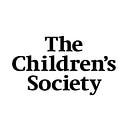A Good Childhood 2020
Every year we publish our Good Childhood Report, a comprehensive study of children and young people’s well-being.
Creating the report this year has been a unique experience, as we have all had to adjust to the impacts of the global pandemic. The Good Childhood Report 2020 builds on our Life on Hold report published earlier this summer on the impact of COVID-19 on children’s well-being.
Whilst it’s clear the pandemic has had an effect on children’s well-being, the Good Childhood Report 2020 takes a longer term view and finds children’s well-being was already in a precarious state before the pandemic. This is what we found:
Children’s well-being is in decline
Our analysis of the latest data from Understanding Society (2017/18) found a significant decrease in children’s happiness with life as a whole.
We have also seen a significant decrease in children’s happiness with their friends, school and happiness with appearance since 2009/10.
These toxic trends in children’s well-being suggest that even before we went into ‘lockdown’ there was already much work to do in order to improve children’s lives.
There are high levels of the fear of failure
We compared the well-being of children in the UK to children in 24 other European countries. Our findings were not good.
Compared to other 24 European countries, 15 year olds in the UK had the lowest life satisfaction in 2018.
When we explored possible explanations for this, we found strong evidence of a connection across countries between fear of failure and life satisfaction. We also found evidence that rising rates of child poverty in this country may be playing a role.
Children are less happy with their friends
Children’s happiness with friends has again decreased, continuing a trend that we have
reported in every Good Childhood Report since 2015. This downward trend is concerning, and so we looked into what might be going on.
Alongside analysis that explored the impact of age, gender and ethnicity, we looked at the
number of close friends children said that they had to turn to. Worryingly, 132,000 (3%) of children said they had no close friends they could talk to if they are in trouble.
When we asked children and young people why they thought someone might be unhappy with their friends and what they think good friendships look like, they told us friendships are complex.
‘You need to remember that you have to put time and effort into your friendship, they are people too and they will also want it to last. But remember if they start saying negative things to you, and/or anyone else, to try to distance yourself or help them see what they are doing is wrong.’
Well-being at heart of Government policy
Young people are telling us what needs to change, and we must listen. As we recover from the Coronavirus Pandemic, it is now time that we rest how we promote, support and respond to children’s well-being.
That’s why we are calling for the government to put children’s well-being at the heart of our recovery from coronavirus with a long term strategy to turn these trends around. To do so we must have national measurement of children’s well-being. Understanding issues what is going on for children is the first step to improving their lives. Without asking children how they feel, we cannot create effective policies that will result in positive change. We have to listen to our young people.
Help us to put children’s well-being at the top of the political agenda by emailing you MP to ask the Government to prioritise well-being.
